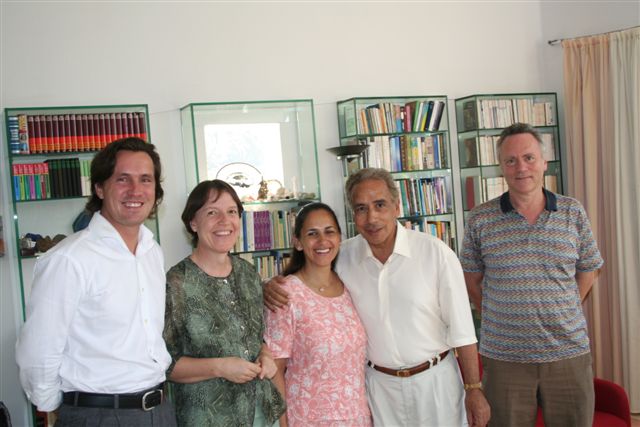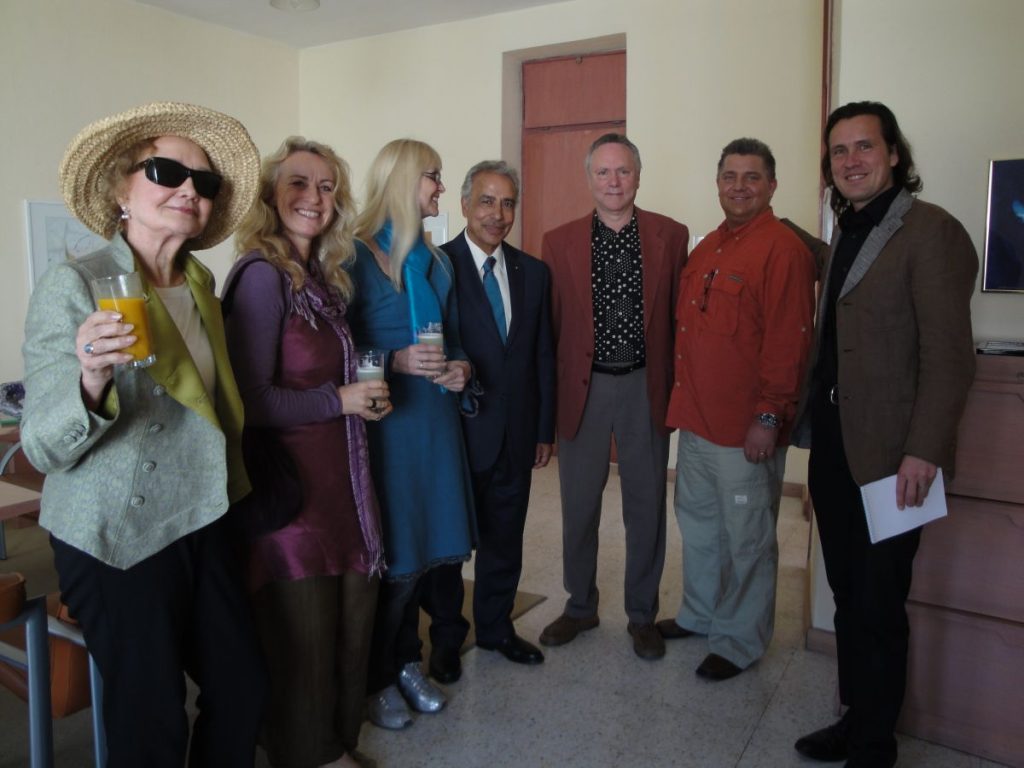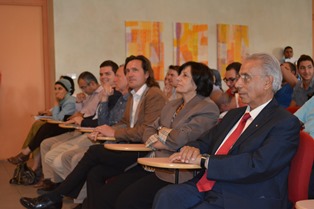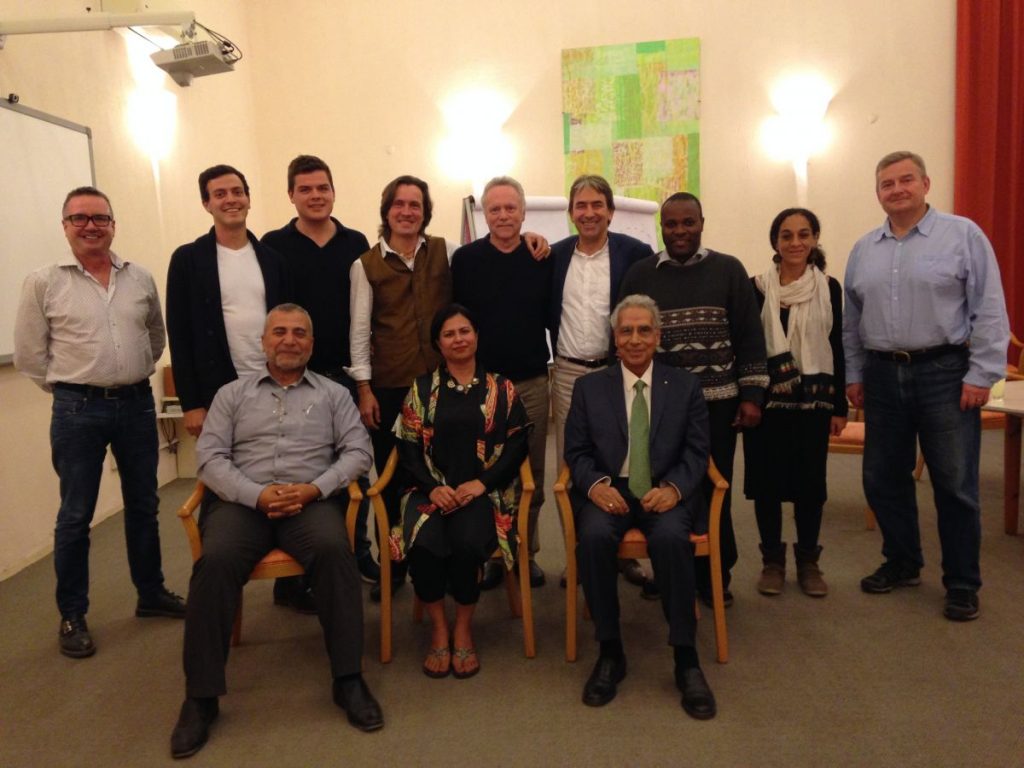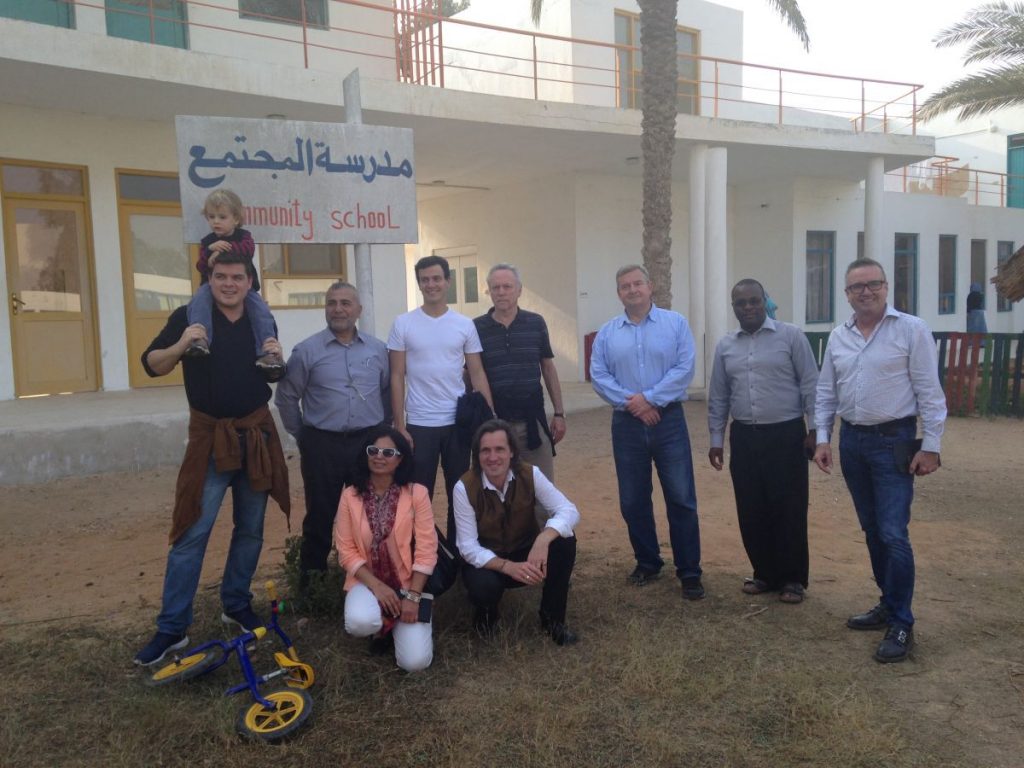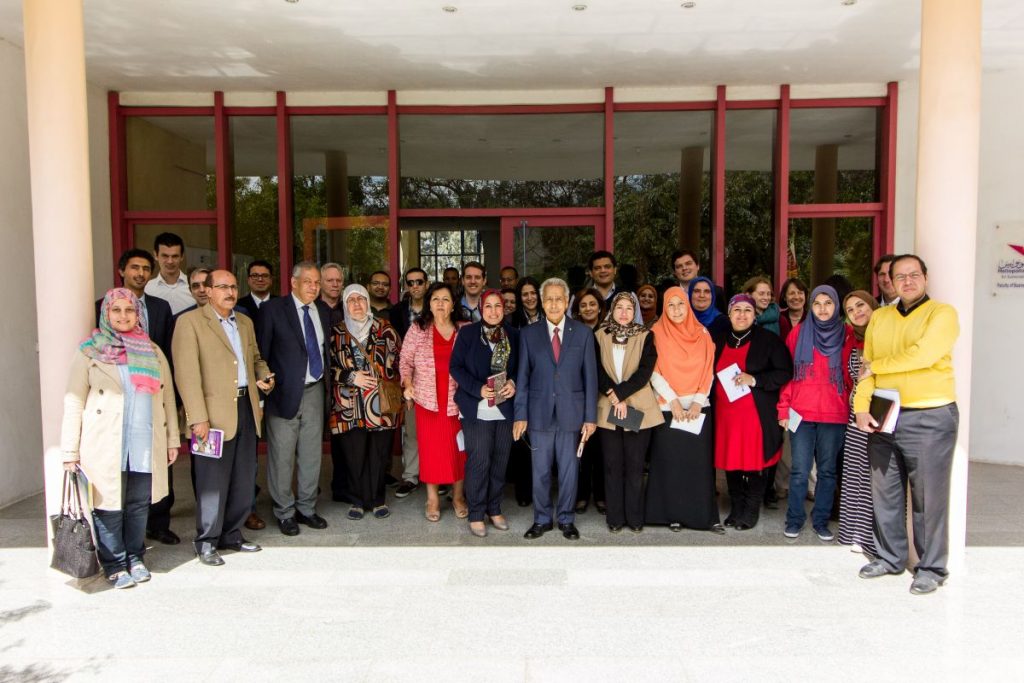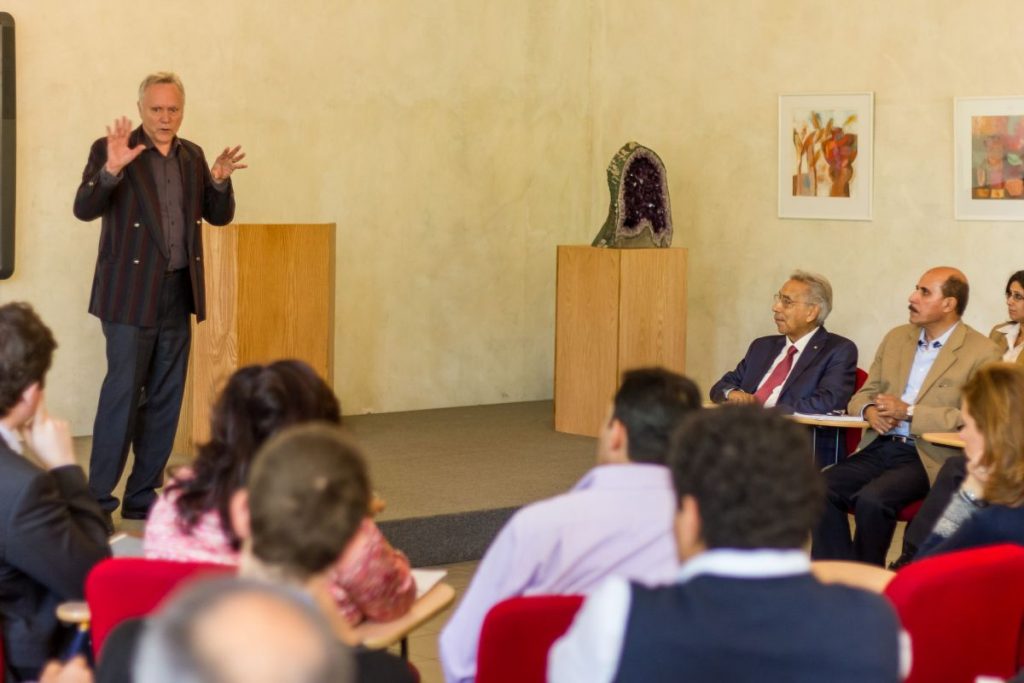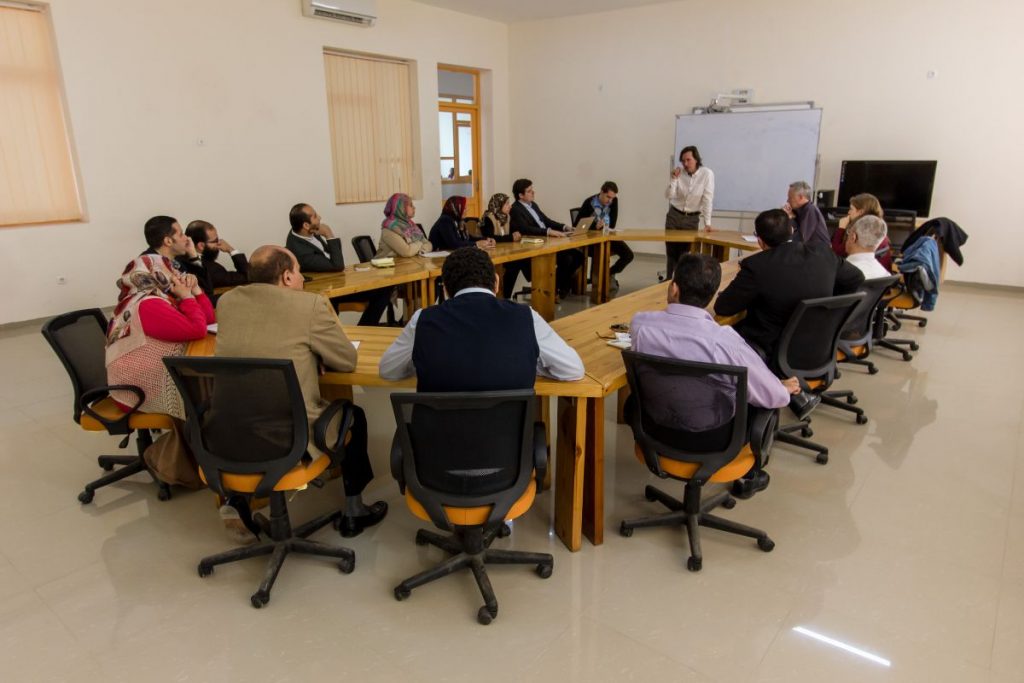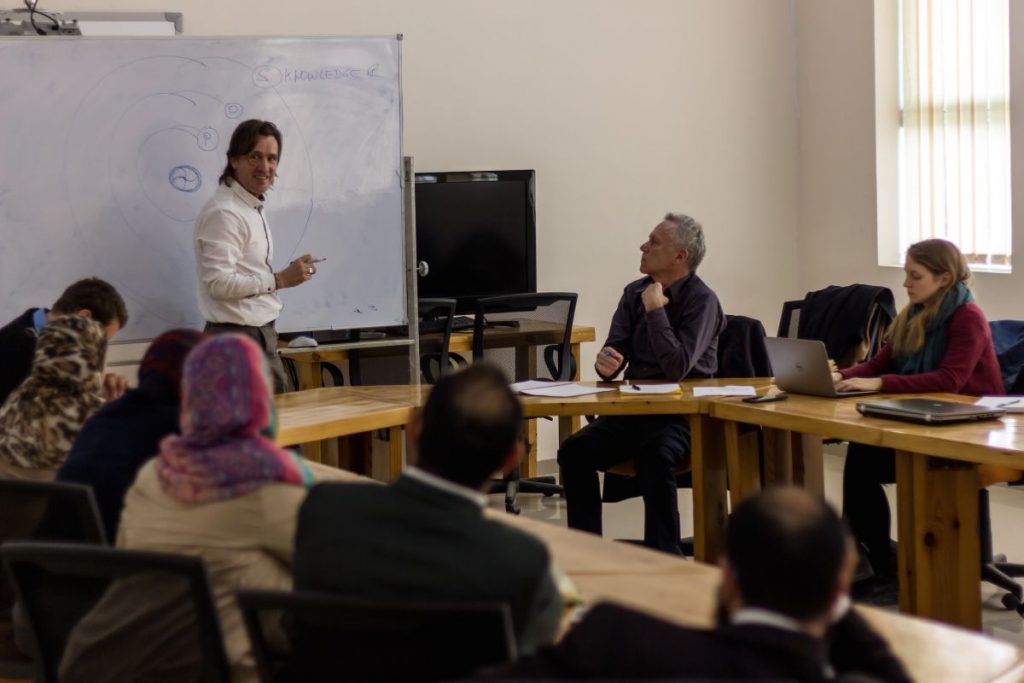Over the past decades, Sekem has become one of the global icons for sustainable development. Sekem and Trans4m cooperate since many years to co-create a role model for an Integral Enterprise and Integral Economy, and to understand and spread the processes underlying social and societal Innovation.
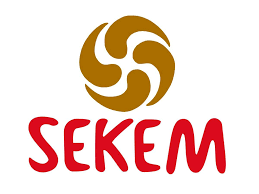 The Sekem initiative is a highly holistic undertaking founded by Dr. Ibrahim Abouleish in 1977 in the Egyptian desert with the vision of fostering “sustainable development towards a future where every human being can unfold his or her individual potential; where mankind is living together in social forms reflecting human dignity; and where all economic activity is conducted in accordance with ecological and ethical principles.”
The Sekem initiative is a highly holistic undertaking founded by Dr. Ibrahim Abouleish in 1977 in the Egyptian desert with the vision of fostering “sustainable development towards a future where every human being can unfold his or her individual potential; where mankind is living together in social forms reflecting human dignity; and where all economic activity is conducted in accordance with ecological and ethical principles.”
Sekem aims to establish a healthy economic model for the 21st century. It was the first entity to apply biodynamic farming methods in Egypt. Sekem’s commitment to innovative development led to the nationwide application of biodynamic and organic methods to control pests and improve crop yields. Over the past decades Sekem has grown exponentially and became a local market leader of organic products and phyto-pharmaceuticals, which are now also exported to Europe and other countries.
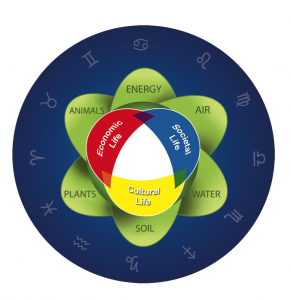
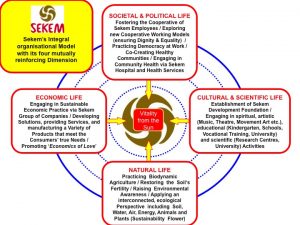
The Sekem Holding represent the economic branch of the initiative that represent the industrial activities with the firms ISIS Organic for fresh fruits and vegetables as well as for organic foods and beverages (such as juice, dairy products, oils, spices and tea), herbs and spices NatureTex for organic cotton and textile children’s clothes and home wear, and ATOS for phyto-pharmaceutical products.
While it is a profit-making enterprise, it does not aim for profit maximisation. Through a profit- sharing methodology, it shares its returns with the smallholder farmers in its supplier network called the Egyptian Biodynamic Association (EBDA) with around 400 members that represent Sekem’s ecological branch. Sekem for Land Reclamation (SLR) for farming and organic seedlings, fertilization and pest control also belongs to this agricultural sphere even though it is formally organised under the Holding. But it is important to distinguish sustainable agriculture from business because the real added value is created in the economic life, which generates profit to be used in cultural life.
Ten per cent of Sekem’s profits are attributed to the Sekem Development Foundation (SDF) that represents the cultural branch of the initiative. It has launched many community development initiatives. These include establishing different schools and a medical center, celebrating culture and diversity, and promoting peace, cooperation and understanding between all human beings. Since 2012, Heliopolis University for Sustainable Development has become a leading part of cultural development under the umbrella of the Sekem initiative.
Last but not least there is the Cooperative for Sekem Employees (CSE) that represents the societal or political branch of the Sekem initiative with its relationship to and in between people respecting human rights. The huge national and international network of Sekem, such as the International Association for Partnership also belongs in this domain, as an institution of economic partners working together as pioneers in the organic movement.
In 2003, Sekem received the Alternative Nobel Price (i.e. the Right Livelihood Award) for being “a business model for the 21st century” in which commercial success is integrated with and promotes the social and cultural development of society. Later in 2015, Sekem was selected to be the winner of the Land for Life Award for its true influence in combating land degradation and its “achievement in revitalising dry lands through biodynamic agriculture methods, … continuous contribution to sustainable land management as well as the contribution …towards human development.”
Since about 2006, Trans4m works closely with Sekem. In many of our books (Transformation Management / Integral Economics / Integral Development and others) we have extensively written about the integral nature of Sekem. Ibrahim Abouleish often states, that it is Trans4m’s integral approach, that helped Sekem to understand itself better, and that was also instrumental to communicate the unique organisational model of Sekem to the world.
Currently, Trans4m cooperates closely with Sekem in the development of its Social Innovation Lab, which is seen as the driving innovation motor behind the holistic Sekem initiative. It is directly under the stewardship of Ibrahim Abouleish and is a key focus on the research-to-innovation of his grandson Maximilian Abouleish.
With Annina Hunziker, already the fourth Trans4m Junior Fellow is working with Sekem on the ground. Annina’s work on Integral Project Management was complemented by a group of Integral Development students from the University of St. Gallen.
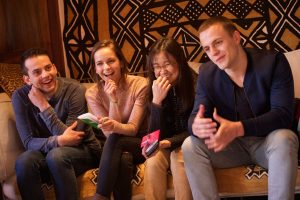
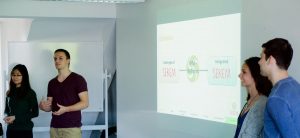
- Trans4m Workshop at Sekem in 2010, here with Ibrahim Abouleish and his "right hand" Regina Hanel
- Trans4m Workshop at Sekem in 2010, with Sam Rima from the USA
- Trans4m Workshop at Sekem, with Zahira Kamal from Palestine
- One Week PhD Intensive at Sekem in 2015
- With PhD Group in Front of Sekem Community School in 2015, with Max Abouleish and his son Noah on the left
- Social Innovation Workshop at Sekem in 2016
- Social Innovation Workshop at Sekem in 2016
- Social Innovation Workshop at Sekem in 2016
- Egypt / Social Innovation: Seminar with Heliopolis University for Sustainable Development
